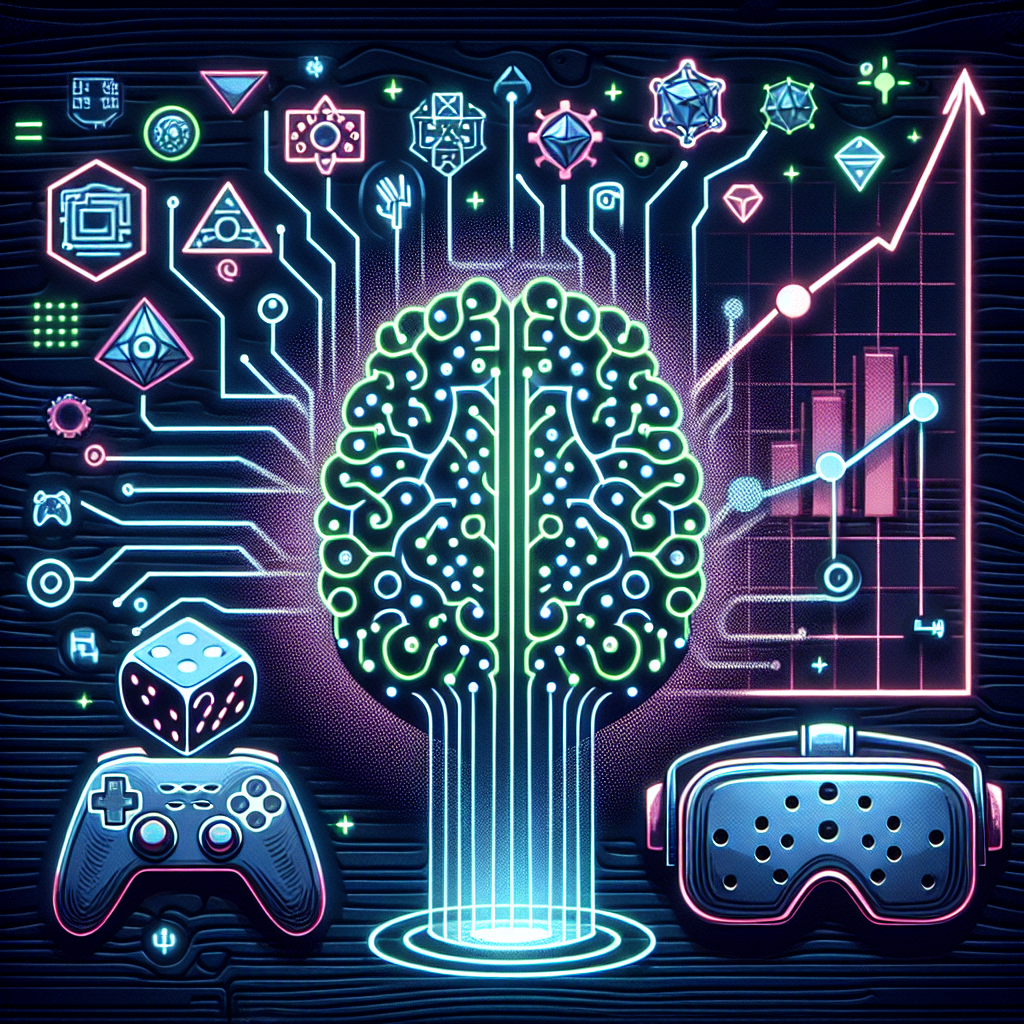Artificial Intelligence (AI) has been revolutionizing various industries, from healthcare to finance to transportation. One area where AI is making a significant impact is in the world of gaming. In particular, AI is being used to dynamically adjust game difficulty levels, providing a more personalized and engaging experience for players.
Game difficulty adjustment has always been a challenge for game developers. Balancing the difficulty level to cater to players of different skill levels can be a daunting task. If a game is too easy, players may get bored quickly. On the other hand, if a game is too difficult, players may become frustrated and give up. This is where AI comes in, offering a solution to this age-old problem.
AI-powered game difficulty adjustment involves the use of algorithms that analyze player behavior and performance in real-time. By collecting data on how players interact with the game, AI can dynamically adjust the difficulty level to provide a more tailored experience for each player. This not only enhances the overall gameplay experience but also increases player engagement and retention.
There are several ways in which AI is being used to adjust game difficulty levels. One approach is to use machine learning algorithms to analyze player data and predict the player’s skill level. By monitoring factors such as player reaction times, decision-making skills, and overall performance, AI can determine the optimal difficulty level for each player. This allows for a more customized gaming experience, where players are challenged just enough to keep them engaged without becoming frustrated.
Another approach is to use reinforcement learning algorithms to adapt the game difficulty based on player feedback. By incorporating a feedback loop into the game, AI can learn from the player’s actions and adjust the difficulty level accordingly. For example, if a player is struggling with a particular level, AI can make adjustments to make it easier, such as providing hints or power-ups. On the other hand, if a player is breezing through a level, AI can ramp up the difficulty to provide a greater challenge.
Overall, AI-powered game difficulty adjustment offers several benefits for both players and game developers. For players, it provides a more personalized and engaging gaming experience, where the difficulty level is tailored to their individual skill level. This can lead to increased player satisfaction and retention, as players are more likely to continue playing a game that offers a suitable level of challenge. For game developers, AI can help streamline the game development process, as it automates the task of balancing difficulty levels. This allows developers to focus on other aspects of game design, such as storytelling and graphics, while AI takes care of adjusting the difficulty level in real-time.
In addition to adjusting game difficulty levels, AI can also be used to create dynamic and adaptive game environments. By analyzing player behavior and preferences, AI can generate new content, such as levels, enemies, and challenges, that are tailored to each player’s unique playing style. This not only increases the replay value of a game but also provides a more immersive and personalized gaming experience.
As AI continues to evolve and become more sophisticated, the future of game difficulty adjustment looks promising. With advances in machine learning and deep learning algorithms, AI will be able to analyze player data more effectively and make even more accurate predictions about player behavior. This will lead to a more seamless and intuitive gaming experience, where the difficulty level adjusts in real-time to provide the perfect balance of challenge and enjoyment.
FAQs:
Q: How does AI adjust game difficulty levels?
A: AI adjusts game difficulty levels by analyzing player data in real-time and making predictions about the player’s skill level. By monitoring factors such as reaction times, decision-making skills, and overall performance, AI can determine the optimal difficulty level for each player.
Q: What are the benefits of AI-powered game difficulty adjustment?
A: AI-powered game difficulty adjustment provides a more personalized and engaging gaming experience for players. It increases player satisfaction and retention, as players are more likely to continue playing a game that offers a suitable level of challenge. For game developers, AI streamlines the game development process, allowing them to focus on other aspects of game design.
Q: How does AI create dynamic and adaptive game environments?
A: AI creates dynamic and adaptive game environments by analyzing player behavior and preferences. By generating new content, such as levels, enemies, and challenges, that are tailored to each player’s unique playing style, AI increases the replay value of a game and provides a more immersive gaming experience.

